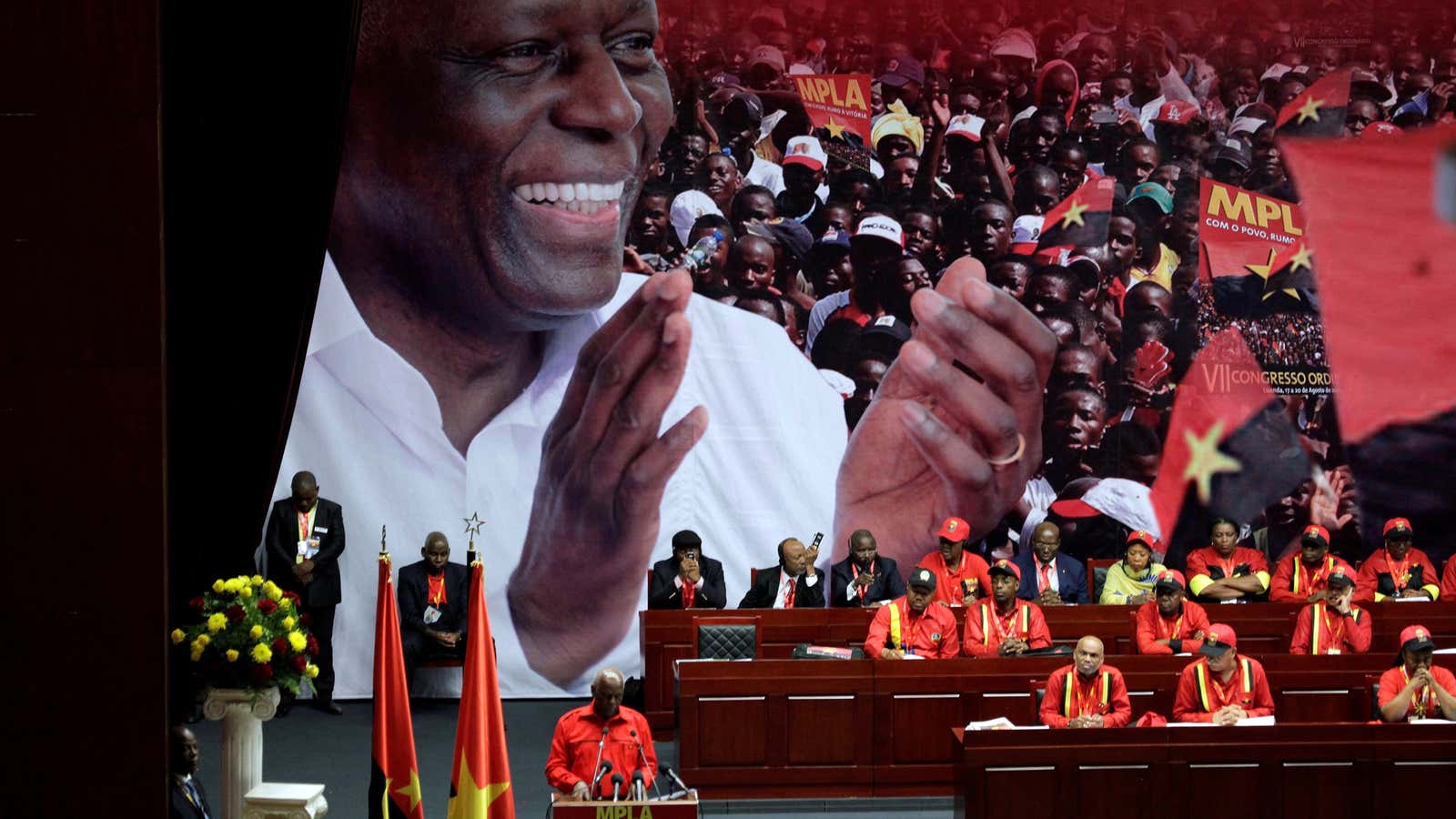Angola’s president José Eduardo dos Santos has fired the country’s finance minister, according to a statement from the government. Dos Santos gave no explanation for his Sept. 5 replacement of Armando Manuel with Archer Mangueira, the head of Angola’s Capital Markets Commission, according to Reuters.
Manuel was appointed in 2013, just before the oil price tanked, and since then he has presided over an economy battered by weakened oil exports. Angolan newspapers have reported that Manuel’s replacement is directly linked to the country’s stalled talks with the International Monetary Fund over medium-term emergency funding.
Mangueira, also known as Augusto Archer de Sousa Hose, was recently elected to the ruling MPLA’s central committee, bringing him closer into dos Santos’s political inner circle. He is also a familiar face to international investors.
The Angolan news site Noticias cited a source in the ruling party saying the IMF’s conditions did not sit well with the president, especially ahead of the 2017 elections. In June, dos Santos told the IMF that his country would no longer participate in long-term loan negotiations, and would only discuss the IMF’s annual assessment of Angola.
In February, a still confident Manuel delivered a speech to London’s Chatham House, emphasizing his country’s strong relationship with international financial institutions like the IMF. Manuel’s office turned to the IMF for assistance as oil prices continued to slump. Angola is Africa’s largest oil producer, with oil contributing 90% of its GDP. Thanks to an oil boom, Angola has not needed the help of the Bretton Woods institutions such as the IMF and the World Bank, until now.
Reports that Angola needed a bailout made Manuel look bad, said Soren Kirk Jensen, a researcher with Chatham House. Back home, Manuel’s office said Angola was seeking assistance for an “out-of-crisis program meant for diversification of its economy” through the IMF’s Extended Fund Facility according to the Angolan Press Agency.
But the IMF’s Extended Fund Facility comes with conditions that may be unattractive to dos Santos and the ruling MPLA ahead of next year’s elections. The funding facility requires structural adjustments to reform institutional and economic policies. That would also require greater transparency for state-owned companies, including Sonangol, the country’s national oil company, which is now run by the president’s daughter.
Angola’s weakening currency has seen inflation rise from 10% in 2015 to 35% this year. And according to data collected by Reuters, Angola’s currency, the kwanza, weakened 30% against the US dollar last year. The official exchange rate was 165 kwanza to the dollar on Sept. 5, but on the black market, $1 sold for 600 kwanza. This year, the central bank was forced to devalue the currency again. Later this month, Angola’s cabinet will vote on a revised 2016 state budget, taking into account the lower oil price.
The oil price has recovered somewhat, but not enough to pull Angola out of its slump. Angola’s economic woes have threatened dos Santos’s rule. The Angolan president has been in power since 1979, and last month the ruling party once again elected him as leader. But growing popular dissent has eroded his political power.
